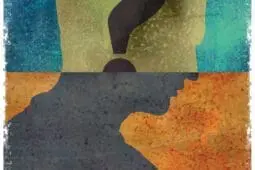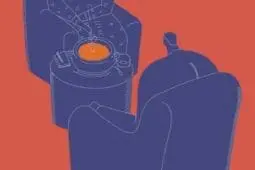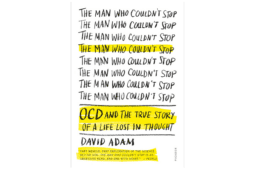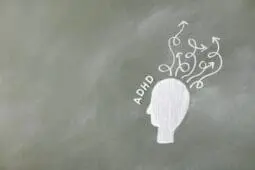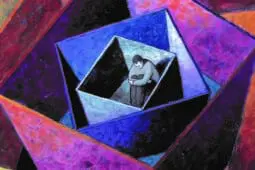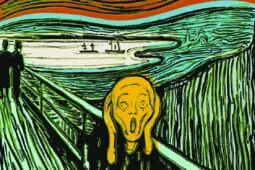Clinical Skills & Experience
We’ll Never Be Here Again
Stopping to Listen on a Late-life PassageJim and I just celebrated our 40th wedding anniversary by taking a trip to the Pacific Northwest. We travel differently than many of our friends, avoiding... Read more
Solutions for Moving Beyond the Therapeutic Impasse
Three Strategies for Making Progress with Stuck ClientsWhen clients get immersed in their problems, they often suffer from a kind of tunnel vision, focused on a small range of experiences, with their bad feelings... Read more
Don't Go It Alone
The Power of Focusing PartnershipsIt’s not exactly a state secret: most of us become therapists because we want to help people. We want to help them feel less alone with their pain and find... Read more
Rediscovering Happiness
The Use of Positive Childhood Triggers in PsychotherapyTo create deep change, we need to help people mine the sources of intense pleasure in their lives, wherever they may find them. Read more
Burnout Reconsidered
What Supershrinks Can Teach UsJessica, a counselor in her mid-30’s, works at a large, public mental health clinic in a major metropolitan area. Her workday begins early, the alarm... Read more
Addressing Race Therapeutically in Black Relationships
Testimonials from the 2015 Psychotherapy Networker SymposiumToday I attended a workshop called “Working with Black Couples: Overcoming Myths and Stereotypes,” led by Dr. Christiana Awosan. Being an African American... Read more
The Therapeutic Goldmine of Song, Dance, and Mindfulness
Testimonials from the 2015 Psychotherapy Networker SymposiumJohn Kabat-Zinn sparked my interest when he recounted the time Oprah asked him, "Is there life after death?" His reply to her: "Oprah, I'm interested in the... Read more
Addressing Race and Culture in the Therapy Room
Testimonials from the 2015 Psychotherapy Networker SymposiumAs a family therapist, I know the power of thinking relationally, collaborating, and working across difference to find the many places where we actually share... Read more
Couples Therapy, Brainspotting, and Truth in Love
Testimonials from the 2015 Psychotherapy Networker SymposiumI had the pleasure of attending the Brainspotting seminar with David Grand today. What fresh and amazing information! I am drawn to anything that involves the... Read more
Hypnotic Language in the Consulting Room
Bill O'Hanlon on the Power of Giving Permission in TherapyAs therapists, we must recognize the complexity and ambivalence at the core of human experience. People run into problems when their lives are dictated by... Read more
Defusing Male Shame
Understanding the Significance to Male ClientsShame is an emotion that isn’t healthy. Unlike guilt–which causes remorse for something you did wrong–shame can cause someone to feel as... Read more
It’s time we address the psychological toll of the daily bombardment of information that permeates our lives. Read more
Therapists are far more impressed with clinical fads than they should be. Read more
Spitting in the Client's Soup
Don’t Overthink Your InterventionsIn our profession, it’s often more alluring to explore new gimmicks than to acknowledge that our success largely hinges on simple, commonsense factors. Read more
Seven Myths about Meditation
A One-Size Approach Doesn’t Fit AllSeven myths about meditation for clinicians to ponder. Read more
Knowing When to Push
Balancing Safety and ChallengeWhen a client has been sexually abused, it can be difficult to find the balance between creating safety and challenging old patterns. Read more
Lost in the Maze
Finding the exit from OCDReview: The Man Who Couldn’t Stop: OCD and the True Story of a Life Lost in ThoughtFinding an exit from the bewildering maze of a disorder that confounds... Read more
VIDEO: Who Should You Talk To?
Janina Fisher on how and when to speak to a client’s “child part”When an adult is in your consulting room, it’s understandable if you use adult language and logic. But at certain points in the healing process, you may need... Read more
VIDEO: How to Help Clients Cope With Overwhelming Emotion
Joan Klagsbrun on Three Focusing Techniques That WorkIntense emotion in the consulting room can leave some clients overwhelmed; others shut down. Either response can derail your session. Now here’s some help... Read more
Mary Pipher on Leaving Our Biases outside the Consulting Room
Finding Respect for All ClientsFrom the moment I met the Correys in my waiting room, I was baffled about why they were together. Frank was tall, good looking and suave; Donna dowdy and... Read more
Letting Go of Our Facade
To Tell the TruthTherapists aren't supposed to discuss personal problems, or even acknowledge having any. While preaching congruence, who among us has never pretended fondness... Read more
Creating a Sacred Space in Therapy
A Conversation with Jack KornfieldOpenness to the larger mystery of our lives can deepen the therapeutic encounter. Read more
Nature, Pixelated
How the Virtual World Is Rewiring Our SensesFor the first time in history, we’re mainly experiencing nature through intermediary technology that paradoxically provides more detail while flattening our... Read more
The Anatomy of Procrastination
Helping the ADHD Client Make Changes StickClients with ADHD often know the coping skills that can improve their lives—the problem is applying them in daily life. Read more
Voices of Reason
Empowering clients to alter their internal experiencesThe case of a young man hearing voices shows how even problems that first appear to be extreme can be resolved by empowering clients to alter subtle aspects of... Read more
A Little Wiggle Room
It's Never too Late to Change Your StoryIt’s never too late to change your story Read more
A few decades ago, when young therapists like myself watched Salvador Minuchin, Virginia Satir, Carl Whitaker, or other leading lights, it was like... Read more
Do therapists have a responsibility to educate people about society's role in generating unprecedented levels of depression? Read more
The Depression Epidemic
Can Mood Science Save Us?It’s time to get beyond simplistic notions about “chemical imbalances” and finally reckon with how deeply rooted depression is in the uncertainties and... Read more
A Brief History of Anxiety
The Invention of a Modern MalaiseLife today is, in many ways, easier than it used to be. Therefore, shouldn’t we be less anxious than we once were? Read more





